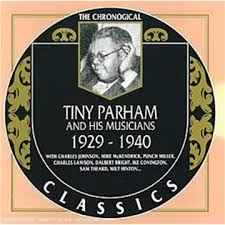
Daily Dose Of Jazz…
Guy Edgar Kelly was born in Scotlandville, Louisiana on November 22, 1906. In his early career he performed in Baton Rouge, Louisiana with a band led by Toots Johnson before going to New Orleans, Louisiana to play in Papa Celestin’s band in 1927-1928. While residing there he would regularly perform in trumpet duels with Red Allen.
In 1929 he went on tour as a member of Kid Howard’s band, and then joined Boyd Atkins’s band in the summer of 1930. By 1931 Kelly had moved to Chicago, Illinois where he was working with Cassino Simpson and Erskine Tate.
In the 1930s he worked with banjoist Ed Carry, pianists Dave Peyton, Tiny Parham, Albert Ammons, violinist Carroll Dickerson, and clarinetist Jimmie Noone,. Guy appears on the Noone classic composition The Blues Jumped A Rabbit, recorded Chicago on January 15, 1936.
Trumpeter and singer Guy Kelly died February 24, 1940.
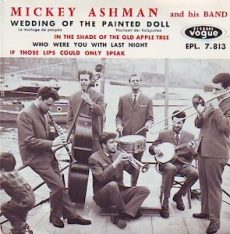
Daily Dose Of Jazz…
Mickey Ashman was born on November 12, 1927 in the United Kingdom and began playing the double bass at a young age. His sojourn into the jazz world began in the early 1950s when he collaborated with Chirs Barber in one of his amateur bands. Their early 1951 recording Misty Morning hinted at his exceptional musical talent.
The mid-Fiftiess saw his transition into the professional realm of jazz, joining Humphrey Lyttelton’s band. In 1956, he returned to Chris Barber’s Jazz Band, further solidifying his reputation as a sought-after bassist. Mickey made significant contributions to two influential LP records, Echoes Of Harlem and Volume 2 in the Chris Barber Plays series.
Parting ways with Chris Barber’s band following Lonnie Donegan’s exit in 1956, he joined Lonnie in creating one of the UK’s most popular musical acts in the late 1950s. By the early 1960s, he embraced leadership, forming Micky Ashman’s Ragtime Jazzmen. Although the group didn’t achieve the same level of fame as some of its contemporaries, they contributed noteworthy recordings like Tin Roof Blues.
His dedication to jazz and versatile talent solidified his place in British jazz history and his legacy continues to inspire musicians. Double bassist Mickey Ashman, also known as Micky, died on August 21, 2015.
More Posts: bandleader,bass,history,instrumental,jazz,music
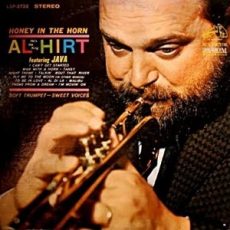
Daily Dose Of Jazz…
Alois Maxwell Hirt was born on November 7, 1922 in New Orleans, Louisiana to a police officer father. At the age of six, he got his first trumpet, which had been purchased at a local pawnshop. He played in the Junior Police Band with friend Roy Fernandez, the son of Alcide Nunez. By 16 he was playing professionally with his friend Pete Fountain, while attending Jesuit High School. During this time, he was hired to play at the local horse racing track, beginning a six-decade connection to the sport.
1940 saw Al in Cincinnati, Ohio studying at the Cincinnati Conservatory of Music with Dr. Frank Simon. After a stint as a bugler in the Army during World War II, he performed with various swing big bands, including those of Tommy Dorsey, Jimmy Dorsey, Benny Goodman, and Ina Ray Hutton.
In 1950 Hirt became the first trumpet and featured soloist with Horace Heidt’s Orchestra and after several years on the road he returned to New Orleans working with various Dixieland groups and leading his own bands. He soon signed with RCA Victor and posted twenty-two albums on the Billboard charts in the 1950s and 1960s. He recorded the theme for the 1960s television show The Green Hornet, with arranger and composer Billy May.
From the mid-1950s to early 1960s, Hirt and his band played nightly at Dan’s Pier 600, hosted the hour-long television variety series Fanfare, as the summer replacement for Jackie Gleason and the American Scene Magazine, and would go on to play for Pope John Paul II.
Trumpeter and bandleader Al Hirt died of liver failure on April 27, 1999 at the age of 76, after having spent the previous year in a wheelchair due to edema in his leg.
More Posts: bandleader,history,instrumental,jazz,music,trumpet
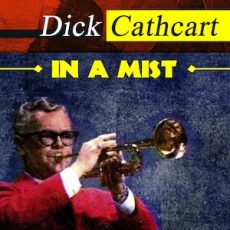
Daily Dose Of Jazz…
Charles Richard Cathcart was born on November 6, 1924 in Michigan City, Indiana. He was a trumpeter for the U.S. Army Air Force Band, and was a member of big bands led by Bob Crosby, Ben Pollack, and Ray Noble.
After World War II he moved to Los Angeles. His friend Jack Webb was playing the part of trumpeter Pete Kelly in the movie Pete Kelly’s Blues and told Cathcart he should supply the music. The band from the movie stayed together in the 1950s for performances and recordings under the name Pete Kelly’s Big Seven.
Cathcart also supplied music for the television show Dragnet, which starred Jack Webb as Joe Friday. He spent much of his career from 1962 to 1968 as a musician on The Lawrence Welk Show. On the Welk show, he met Peggy Lennon, a singer with the Lennon Sisters, and the two married.
Trumpeter Dick Cathcart, who played in both Dixieland and big band genres, died on November 8, 1993 in Los Angeles, California.
More Posts: history,instrumental,jazz,music,trumpet
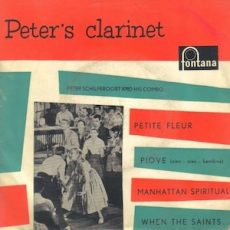
Daily Dose Of Jazz…
Anne Peter Schilperoort was born on November 4, 1919 in The Hague, Netherlands. Famous for his work with the Dutch Swing College Band, and projects with other well-known musicians.
He is most recognized as a saxophone and clarinet player, but also played the guitar and the banjo. Leading the Dutch Swing College Band from 1946 to 1955, then from 1960 to 1990, his style was Dixieland, a style popular at the start of the twentieth century. His band became widely popular across Europe, Australia, Asia and South America in 1960, known as a Dixieland revival band.
Peter Schilperoort, also known as Pat Bronx, died in Leiderdorp, Netherlands on November 17, 1990 at the age of 71.
More Posts: banjo,clarinet,guitar,history,instrumental,jazz,music,saxophone


